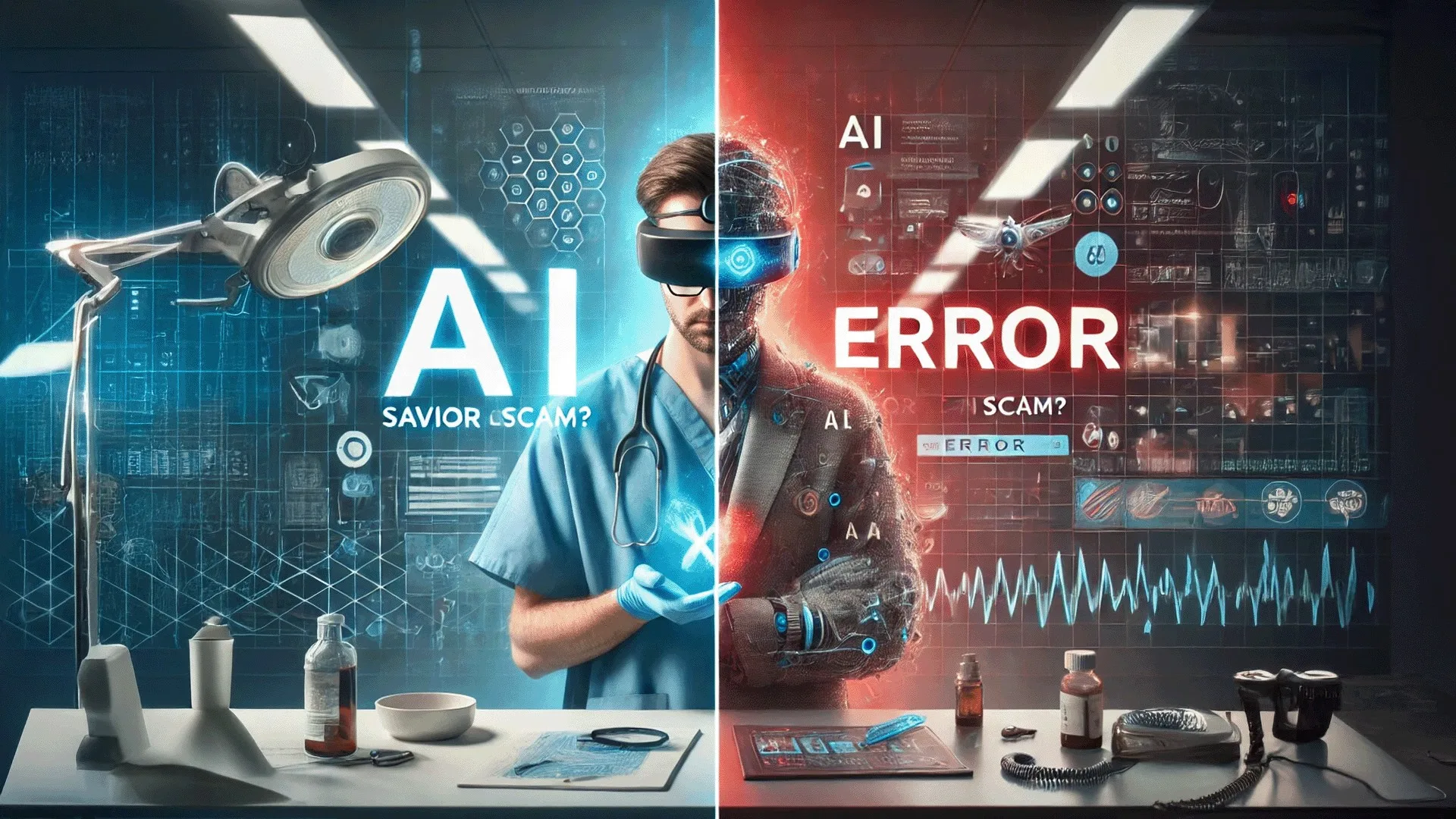Artificial Intelligence (AI) is the buzzword everyone seems to be talking about, especially in the healthcare industry. I recently returned from the
Artificial Intelligence (AI) is the buzzword everyone seems to be talking about, especially in the healthcare industry. I recently returned from the HLTH Health Conference in Las Vegas, where AI wasn’t just a side conversation—it was the main event. From keynote speakers to tech vendors, nearly every booth and presentation had some form of AI-related claim. But as I dug deeper, I realized something surprising: not all “AI” was truly AI. Let’s dive into what’s really happening with AI in healthcare, how it’s being marketed, and what the future holds for professionals in the industry.
The Hype vs. Reality of AI in Healthcare
Walking through the conference halls, it was clear that AI has become the “hook” for many companies. Slap an “AI” label on your technology, and suddenly you’re the center of attention. But the reality? A lot of what’s being marketed as AI is more about workflow automation or enhanced digital tools, not the groundbreaking machine learning or neural networks that most people associate with the term.
For instance:
- Many vendors showcased bots that automate routine tasks like appointment scheduling or billing.
- Others featured tools that optimize workflow efficiency, such as predictive analytics to streamline patient intake.
While these are undeniably useful advancements, they don’t meet the technical definition of AI as a system capable of performing tasks that typically require human intelligence.
Why “AI” Is Such a Powerful Buzzword
Why are companies so quick to label everything as AI? The answer lies in psychology. The term “AI” evokes a sense of innovation and futuristic potential that naturally attracts attention. Whether you’re a decision-maker at a hospital or a curious conference attendee, the promise of AI is hard to ignore.
However, this overuse of the term raises an important concern: Are we diluting the true meaning of AI? If every automation tool is called AI, how can we differentiate between genuine breakthroughs and incremental improvements? This distinction is especially critical in healthcare, where patient safety and outcomes are on the line.
AI’s Real Impact on Healthcare
While some claims may be exaggerated, there’s no denying that AI is making genuine contributions to the industry. Here are a few areas where true AI is already having a transformative impact:
1. Medical Imaging and Diagnostics
AI-powered algorithms are now capable of analyzing medical images with incredible accuracy. For example:
- Radiology: AI tools can identify abnormalities in X-rays, CT scans, and MRIs faster than humans in some cases.
- Pathology: Machine learning models assist pathologists in detecting cancerous cells, reducing diagnostic errors.
But despite these advancements, it’s important to note that AI isn’t replacing radiologists or pathologists—it’s augmenting their capabilities.
2. Predictive Analytics for Patient Care
AI excels at analyzing large datasets to predict outcomes. For example:
- Hospital readmission rates: AI models can identify high-risk patients and suggest interventions to prevent readmissions.
- Disease outbreaks: AI systems analyze global health data to predict and track disease spread.
3. Robotic-Assisted Surgery
One of the most talked-about breakthroughs is robotic surgery, where AI assists in complex procedures. Recent viral videos have shown robots replicating surgical techniques with precision. While impressive, these technologies are still heavily supervised by human surgeons, ensuring patient safety.
4. Virtual Health Assistants
From chatbots answering patient questions to virtual nurses reminding patients to take medications, AI-driven assistants are improving access to care and empowering patients to manage their health more effectively.
Send emails, automate marketing, monetize content – in one place
The Fear Factor: Will AI Replace Healthcare Jobs?
A common concern I heard at the conference—and one I often hear from colleagues—is the fear that AI will replace healthcare jobs. Will radiologists, surgeons, or nurses be out of work? The short answer: No.
Here’s why:
- AI enhances, it doesn’t replace. Most AI tools are designed to support healthcare professionals, not take their place. A robot may assist in surgery, but it doesn’t have the judgment, empathy, or experience of a human surgeon.
- Shifting roles, not disappearing roles. As AI handles routine tasks, healthcare professionals can focus on higher-level responsibilities like patient care, research, or leadership roles.
- The human touch is irreplaceable. At the end of the day, healthcare is about people. Patients want empathy, understanding, and trust—qualities that AI can’t replicate.
Ethical Concerns and the Need for Guardrails
While there’s much to celebrate about AI, it’s equally important to address potential risks. As we embrace these technologies, we must consider:
- Bias in AI algorithms: If an AI system is trained on biased data, it could perpetuate inequities in healthcare delivery.
- Patient privacy: AI systems often require access to sensitive health data, raising concerns about security and consent.
- Accountability: Who is responsible if an AI system makes an error—developers, providers, or both?
To navigate these challenges, the healthcare industry must implement safeguards, including rigorous testing, transparent algorithms, and clear regulations.
Embracing AI with Caution and Curiosity
As I reflect on the HLTH conference, one thing is clear: AI is here to stay, and its potential to transform healthcare is enormous. But we must approach it with both enthusiasm and discernment. Here’s my advice to healthcare professionals and organizations:
- Stay informed. Follow developments in AI to understand what’s real and what’s hype.
- Be open to change. Embrace technologies that improve efficiency and patient outcomes, even if they feel unfamiliar at first.
- Advocate for safeguards. Support policies that ensure AI is used ethically and responsibly.
Final Thoughts: The Future of AI in Healthcare
When we think about transformative technologies like AI, it’s natural to feel a mix of excitement and apprehension. But history has shown us that innovation often leads to progress. Just as the first smartphones revolutionized communication, AI has the potential to revolutionize healthcare—if we harness it wisely.
So let’s stop panicking, start collaborating, and focus on what truly matters: delivering the best possible care to patients.
Send emails, automate marketing, monetize content – in one place


